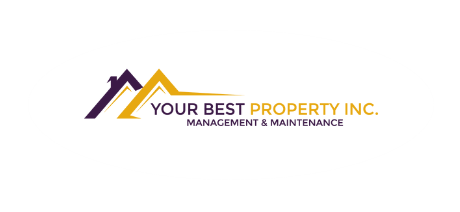Your Trusted Partner in Real Estate. Contact me at 416.830.4133 for all your property needs.

Lease Agreement: Landlords in Ontario are required to use the standard lease provided by the Residential Tenancies Act (RTA). While amendments are allowed, they must not contradict the RTA.
Deposits: In Ontario, landlords can typically request a deposit equivalent to the last month's rent, and sometimes a key deposit. It's important to note that last month's rent earns interest at the rate of the residential rent increase guideline, interest is often used to top up the final month's rent. The key deposit should be equal to the amount it would cost to replace the key or key fob, and is refundable when returned to the landlord.
Communication and Tenants Rights: Tenants have the right to "quiet enjoyment," which means they are entitled to peacefully enjoy their rental unit without fear that their privacy will be infringed upon. While communication between landlords and tenants is encouraged, it should be within reason. Tenants also have an obligation not to interfere with the landlord's rights to maintain the property, as such Tenants should respect their Landlord or Property Managers request to enter the unit within reason. Landlords must give tenants 24 hours' notice before entering the rental unit, and provide a valid reason for entry, unless it is an emergency.
Following Landlord's Maintenance Procedures. It is important to follow the landlord's established procedures for reporting maintenance requests. Timely communication and cooperation are crucial, as landlords have set timelines to respond to these requests. Starting the process promptly ensures the maintenance timeline begins.
Maintenance You Should Do: Some minor maintenance including replacing light bulbs and regular cleaning are tasks that tenants should take care of. Another example is using a plunger to unclog a toilet. This is typically the tenant's responsibility. Tenants are encouraged to attempt these tasks before contacting the landlord, but if you have any concern about your ability to complete these tasks, contact your landlord first. If maintenance is neglected and the Landlord incurs costs to fix issues costs maybe passed on to the tenant, as permitted by law.
Neglected Service Orders: In the event that a landlord fails to respond to requests for repairs or maintenance, tenants could take the following steps: Obtain three quotes for the necessary repairs or maintenance and hire one contractor to do the work. Submit the invoice as evidence of the work performed to the landlord for reimbursement. If the landlord refuses to reimburse, tenants can take the matter to the Landlord and Tenant Board (LTB) to request payment, provided that they have followed proper procedures and completed the proper forms.
Notice of Entry: Landlords or their agent have the right to enter your rented space. They need to provide a reason and 24 hours notice. Its recommended that you comply with this notice. You can be present or out of the unit, however denying access to the rental unit can result in the Landlord requesting to end tenancy early.
Notice of Rent increase: If your property is build prior to November 15, 2018, rent can only be increased by the Rent Increase Guideline, which is typically a maximum of 2.5% and changes each year. As a tenant the Landlord must give you notice a minimum of 90 days before this new rental rate become effective. The Landlord can apply for an Above Guideline Rent increase, this will be noted on the form, if they have made improvements to the rental property. This increase needs to be permitted by the LTB, if its found to be valid, the Tenant my have to pay the outstanding difference in rent if they have not started to pay the new rental rate. If your property was build after November 15, 2018, there is no rent control in place and the Landlord can raise rent at their discretion.
Eviction: Only the Landlord and Tenant Board can evict a tenant. Landlords can request to end tenancy for a variety of reasons, however they do need an order from the Landlord and Tenant Board. Landlords may need the rental unit for themselves or a family member, in this case they will issue an N12. Another reason they may give notice to end tenancy is if a tenant has interfered with the Landlords rights. If you receive an N5, you will have an option to void the N5 by complying with the Landlords request. If you fail to void the N5, the second N5 can be filed with the LTB.